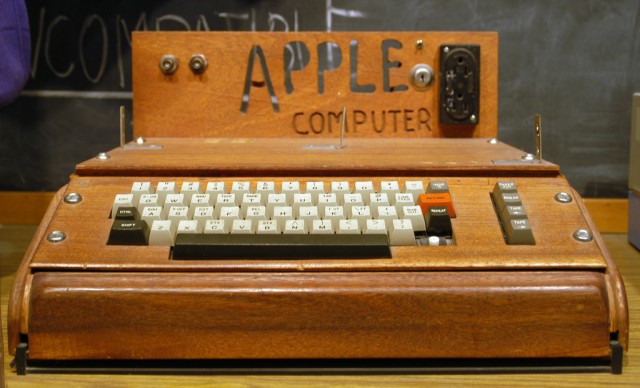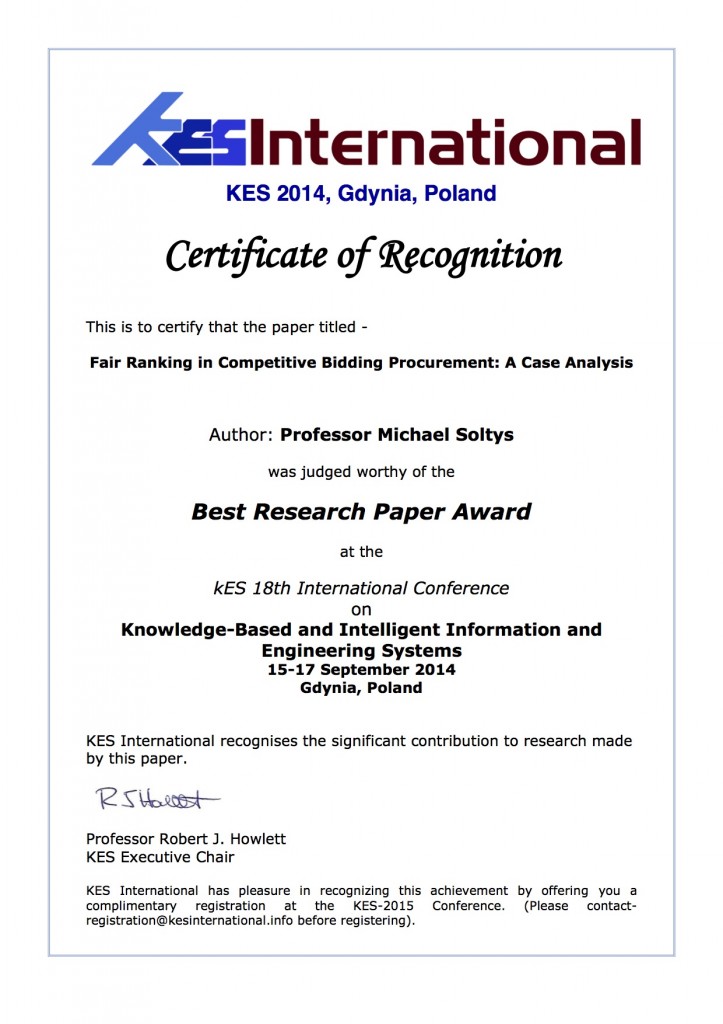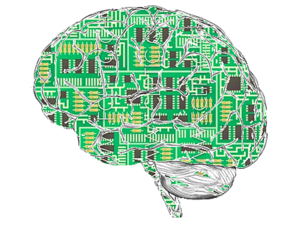On December 11, the only known surviving Apple I computer personally sold by Steve Jobs — out of his parents’ garage in 1976 — will be offered at auction. The auctioneer, Christie’s, estimates a sale price of between $400,000 and $600,000 — but just last week, the Henry Ford Museum bought a similar Apple I at auction for $905,000, and that particular computer lacked documentation tying it directly to Steve Jobs. We wouldn’t be surprised if this Apple I which is still in fully working order, incidentally sells for over $1 million, making it by far the most expensive computer relic in the world.
Blog
Ray Miller trail in Point Mugu State Park
Views of the PCH while hiking the Ray Miller trail.
My paper on Fair Ranking won Best Paper Award at KES2014
My paper Fair Ranking in Competitive Bidding Procurement: A Case Analysis has won the Best Paper Award at KES 2014.
Position at CSU San Marcos Computer Science
CSU San Marcos Department of Computer Science is looking for a program director for the Professional Science Master in Cybersecurity:
Talk by Nick Rakoczy in COMP/IT 424
A great talk by Nick Rakoczy in COMP/IT 424, Security, at CSU Channel Islands. Students my view the talk slides here.
Ask Watson or Siri: Artificial intelligence is as elusive as ever
In 1966, some MIT researchers reckoned that they could develop computer vision as a summer project, perhaps even get a few smart undergrads to complete the task.
The world has been working on the problem ever since.
Computer vision is where computers recognize objects like people do. That’s a tree. He’s Carlos. And so on. It’s one of a number of tasks we consider essential for generalized artificial intelligence, in which machines can act and reason as humans do.
While we’ve been making some considerable headway in computer vision, especially in recent years, that it has taken 50 years longer than expected shows why AI (artificial intelligence) is such a difficult and elusive goal.
via Ask Watson or Siri: Artificial intelligence is as elusive as ever | Computerworld.
National Cybersecurity Career Fair
Email/ Facebook/Blog
All interested students – take a minute and check out the National Cybersecurity Career Fair, a virtual career fair that will allow you to directly connect with employers about cybersecurity job and internship opportunities in an online format over two days this Fall! NCCF will be held November 20-21, please don’t wait to register – sign up NOW at https://app.brazenconnect.com/events/cyberaces-us-career-fair! And connect with NCCF on Twitter, Facebook, and LinkedIn!
All cybersecurity students! Visit nationalcybersecuritycareerfair.com, to register 4 virtual career fair Follow @CyberCareer2014
Calling all cyber students! Go 2 nationalcybersecuritycareerfair.com, new online career fair #cybersecurity Follow @CyberCareer2014
Great news! @CyberAces launches 2nd nationalcybersecuritycareerfair.com, online career fair 4 #cybersecurity students Follow @CyberCareer2014
Opportunities from Cynthia Flores
Cynthia Flores, an assistant professor in the Department of Mathematics at CSUCI, has just attended the SACNAS conference this past weekend, and has noted several great opportunities for students in Computer Science:
- Tapia Conference Codeathon: although applications for funding are closed for the TAPIA conference in Boston, MA, the Code-a-thon is accepting applications for a hands-on workshop. Perhaps some students may still have an opportunity to attend the Code-a-thon.
- The following links are of interest to us as a Hispanic serving institution, and also the CI Computer Girls:
– CAHSI
– NCWIT
– Anita Borg
Stop worrying about mastermind hackers. Start worrying about the IT guy.
 Mistakes in setting up popular office software have sent information about millions of Americans spilling onto the Internet, including Social Security numbers of college students, the names of children in Texas and the ID numbers of intelligence officials who visited a port facility in Maryland.
Mistakes in setting up popular office software have sent information about millions of Americans spilling onto the Internet, including Social Security numbers of college students, the names of children in Texas and the ID numbers of intelligence officials who visited a port facility in Maryland.
The security problem, researchers say, has affected many hundreds of servers running popular Oracle software, exposing a peculiar melange of data to possible collection by hackers. Most of the institutions affected have been universities or government agencies, though they hold a wide range of information on individuals and private companies.
The UCLA Health system, for example, had communications records — including doctors’s names, e-mail addresses and phone numbers — visible online. The Pentagon’s Defense Information Systems Agency, which maintains secure military networks, exposed a contracting database appearing to show $164 million in purchases. Two Texas state agencies failed to protect the personal details of people receiving government services.
This was not the work of sophisticated Russian hackers or Chinese cyber-warriors, who typically get blamed for problems in computer networks. Instead, researchers are pointing to humble system administrators for making routine errors that left the data unsecured.
via Stop worrying about mastermind hackers. Start worrying about the IT guy. – The Washington Post.
Mugu Peak Trail
Chumash Trail which climbs to Mugu Peak, with a view of Malibu south, Santa Monica mountains with Boney Peak east, Port Hueneme Naval base north, and the wide Pacific west. About two hours of rapid climb.










